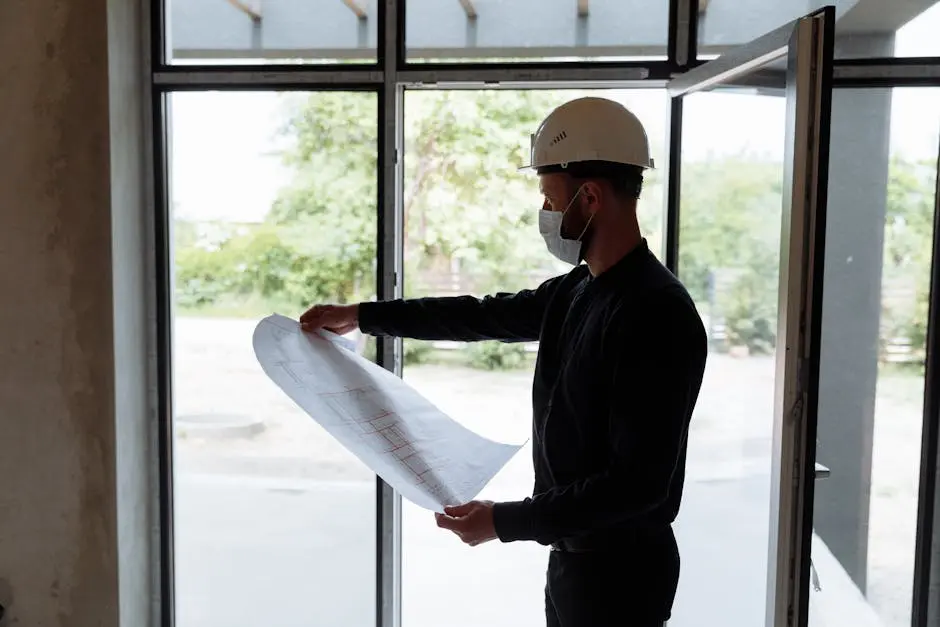Understanding Off-Plan Real Estate: A Beginner’s Guide
Off-plan real estate can seem daunting at first, especially for beginners looking to invest in property. In this guide, we’ll break down what off-plan real estate is, its advantages, and how to navigate this unique market with confidence. Whether you’re an aspiring homeowner or a savvy investor, understanding off-plan properties can open up new opportunities for you.

What is Off-Plan Real Estate?
Off-plan real estate refers to the purchase of property that has yet to be constructed. This can mean buying units in developments that are still being designed or buildings that are only in the early stages of construction. While this concept may seem complex, it opens up a range of opportunities for potential buyers and investors alike.
The appeal of buying off-plan properties lies in the promise of future value. When prospective owners buy a unit before it’s built, they are often securing a price that is lower than market value at completion. This means that by the time the property is ready, they could benefit from significant appreciation in value.
Additionally, purchasing off-plan can allow buyers more options when it comes to design choices or layouts, offering a more personalized touch to their future home. However, it is important to note that buyers are essentially investing in blueprints and should ensure they trust the developer’s reputation to see that vision come to fruition.
The Benefits of Buying Off-Plan
One of the most significant benefits of buying off-plan is the potential for capital appreciation. As previously mentioned, purchasing before the construction is complete can often mean lower initial prices. This results in the opportunity to sell at a profit when the property is completed and market conditions are favorable.
Another advantage is the chance to buy with flexible payment plans. Many developers offer staggered payment plans where buyers can pay for the property in installments over time rather than upfront. This can make it easier for first-time buyers to enter the real estate market without overwhelming financial pressure.
In addition to financial benefits, buying off-plan also provides an opportunity to invest in new developments located in desirable neighborhoods. As cities grow and evolve, new projects often come with modern amenities and better infrastructures, enhancing the quality of life for residents. This leads to an encouraging rental market, which can be attractive for investors.
Potential Risks Involved with Off-Plan Investments
Despite the advantages, investing in off-plan properties comes with its fair share of risks. One of the primary concerns is the uncertainty surrounding the timeline of construction. Delays can occur for various reasons, whether due to financial issues with the developer or unexpected regulatory complications, causing discomfort for buyers who may have been planning to move in by a specific date.
Another risk is the reliance on the developer to deliver a property that meets expectations. Buyers often have to envision what their future home will look like based solely on plans and marketing materials. If the final product doesn’t match the initial vision, it can lead to disappointment and financial loss.
Additionally, market conditions can fluctuate quickly. An investment that seems promising today may not offer the same potential returns by the time the property is completed. This unpredictability emphasizes the importance of conducting thorough research before committing to an off-plan property.
How to Choose the Right Development
Choosing the right development is crucial when investing in off-plan real estate. Start by researching the reputation and track record of the developer. Look into their previous projects and examine customer reviews; a solid reputation can often indicate a reliable outcome.
Consider the location of the development as well. Is it in an area poised for growth? Are there schools, public transportation, and amenities nearby? Understanding local market trends and analyzing future developments in the area can greatly influence your investment’s potential success.
You should also pay close attention to the property specifications, including the types of materials used and the features promised. If possible, visit previous projects by the developer to get a sense of the quality you can expect, as well as consult with real estate experts who can provide additional insights.
The Importance of Research and Due Diligence
Research and due diligence are paramount when making an off-plan investment. Start your journey by gathering as much information as possible about the developer and the project. This includes understanding their financial stability, previous projects, and overall customer satisfaction.
You should familiarize yourself with the property market conditions in the area where the development is located. Investigate whether property values have increased, stabilized, or decreased in recent years. This assessment can help clarify the likelihood of your investment appreciating over time.
Engagement with a legal professional experienced in real estate can also provide guidance, ensuring that your investment is protected and all contractual obligations are understood. Proper due diligence can prevent potential legal issues down the line and bolster your confidence in the investment.
Understanding Payment Structures
Understanding the payment structures associated with off-plan real estate is essential for budgeting. Developers typically offer various payment options, such as deposits at the time of booking and subsequent payments tied to key completion milestones, such as when the foundation is laid or the roof is completed.
Some developments may offer attractive incentives for buyers who choose to pay in full upfront, including discounts or preferential financing options. It’s crucial to weigh these offers against your overall financial situation and long-term investment goals.
Keep in mind that late payments can lead to penalties, so be vigilant about the payment schedule. A clear understanding of your commitment will enable you to manage your finances appropriately, ensuring a smoother process from the purchase to the eventual completion of your property.
Key Questions to Ask When Buying Off-Plan
When considering an off-plan property, asking the right questions can safeguard your investment. Start by inquiring about the expected completion date for the project, as timelines can shift unpredictably.
You should also explore the developer’s track record. What previous projects have they completed successfully? Furthermore, understanding the number of sales already made in the development can provide insight into its popularity and projected demand.
Additional questions should focus on warranties and guarantees, especially concerning construction quality. It’s essential to know what recourse you have if the property doesn’t meet brand standards once completed.
Working with Real Estate Agents and Developers
Collaborating with real estate professionals can streamline the process of buying off-plan properties. Real estate agents often have a wealth of knowledge about available developments and can provide valuable insights into the best investment options that suit your needs.
When working with developers, ensure there is clear communication. It’s essential to establish a good rapport, allowing you to address concerns throughout the construction process while keeping track of its progress.
Lastly, be cautious of any sales pressure tactics while engaging with these professionals. A reliable agent will prioritize your interests and offer sound advice to help you make informed decisions, rather than rushing you into a purchase you might regret later.
Your Next Steps in Off-Plan Real Estate
By now, you should have a solid understanding of what off-plan real estate entails and the various factors to consider when embarking on this investment journey. With careful research and the right strategy, off-plan properties can be a rewarding investment that offers significant returns.

